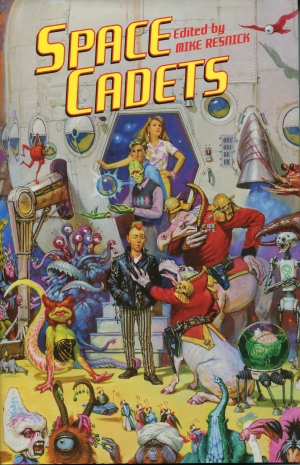Birthday Reviews: Catherine Asaro’s “Echoes of Pride”

Catherine Asaro was born on November 6, 1955.
Asaro has won the Nebula Award for Best Novel for The Quantum Rose and the Nebula Award for Best Novella for “The Spacetime Pool.” She has also won three Sapphire Awards, presented by the SF Romance Newsletter, for the novel Catch the Lightning and the stories “Aurora in Four Voices” and “Moonglow.” Asaro served as President of SFWA from 2003-2005.
“Echoes of Pride” was originally published in the anthology Space Cadets, edited by Mike Resnick and published by SCIFI to coincide with Loscon IV, the 2006 Worldcon. The story is based on a scene from Asaro’s 2004 novel Schism. The story was reprinted in the fifth issue of Galaxy’s Edge in November 2013.
Sauscony Valdoria, Soz, is a cadet in the Dieshan Military Academy, although she harbors a secret which even her closest bunkmates don’t know. When the Imperator, Kurj comes to inspect the troops, he seems to single Soz out for special treatment, ordering her to run an advanced obstacle course which is generally reserved for more advanced cadets.
Even as Soz follows her orders, she tries to figure out why the Imperator, her half-brother, is so focused on humiliating her. Is he trying to get her to wash out, picking on a half-sibling, or making her prove her mettle? Perhaps even more importantly to Soz, she is figuring out how to maintain her secret from her bunkmates, or even wondering if they will recognize how out of the ordinary Kurj’s interest in her is.
As a reworking of a chapter (13) from the 2004 novel Schism, the story clearly ties into a more complex work, yet at the same time, Asaro has managed to let it stand on its own. Without the surrounding novel, “Echoes of Pride” could almost be set in any military training milieu, the intricacies of Asaro’s universe only impinging on it in parts. The story as is offers up sibling rivalry as well as a warrior out to prove who she is and what she is capable of. Being part of a novel, the story can provide an introduction not only to Schism, but to Asaro’s wider works.